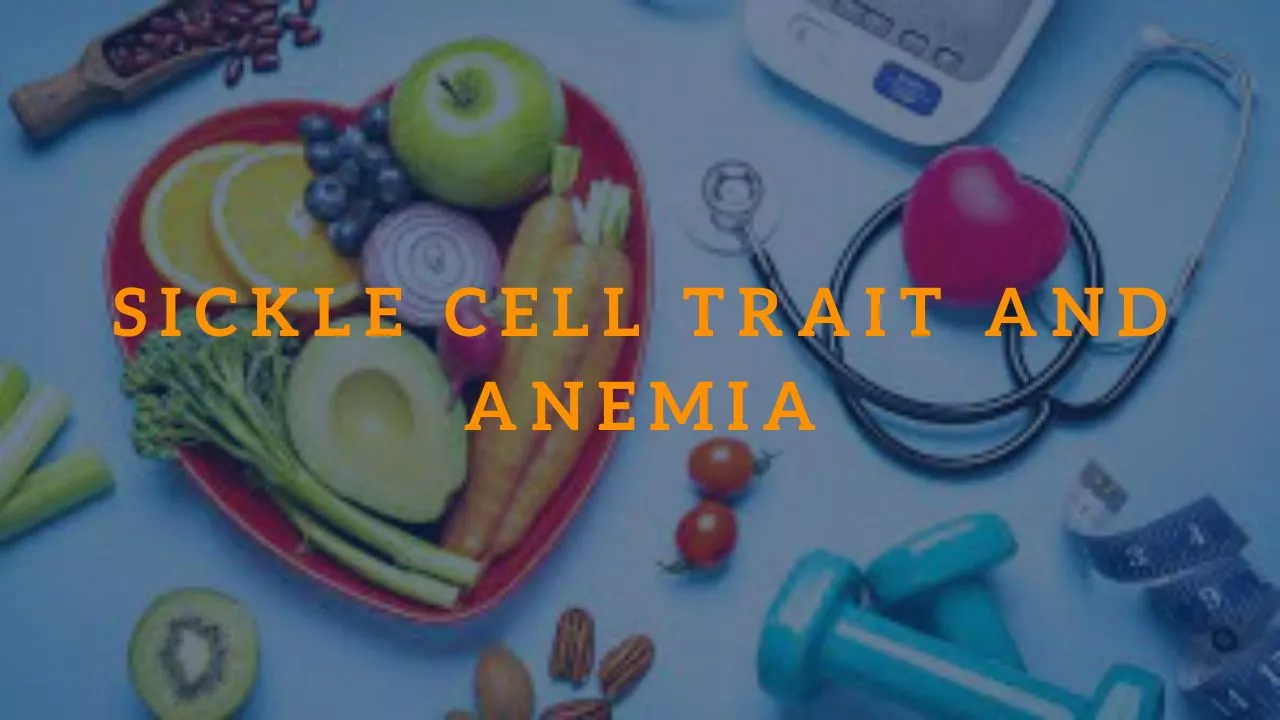Hello 1-GSM Visitors, welcome to our article on sickle cell trait and anemia. Sickle cell trait is an inherited blood disorder that affects millions of people worldwide, particularly those of African descent. Anemia, on the other hand, is a condition that occurs when the body does not have enough red blood cells to carry oxygen to the body’s tissues. In this article, we will explore the relationship between sickle cell trait and anemia.

What is Sickle Cell Trait?
Sickle cell trait is a genetic condition that occurs when a person inherits one abnormal hemoglobin gene from one parent and one normal hemoglobin gene from the other parent. People with sickle cell trait have some sickle-shaped red blood cells, but they usually do not experience symptoms of sickle cell anemia, which is a more severe form of the condition.
What is Anemia?
Anemia is a condition that occurs when the body does not have enough red blood cells or hemoglobin, which is a protein in the red blood cells that carries oxygen to the body’s tissues. Anemia can cause fatigue, weakness, shortness of breath, and other symptoms.
How are Sickle Cell Trait and Anemia Related?
People with sickle cell trait may be at an increased risk of developing anemia, particularly during periods of physical exertion or when they are at high altitudes. This is because the sickle-shaped red blood cells can become trapped in small blood vessels, reducing the amount of oxygen that reaches the body’s tissues.
Diagnosis of Sickle Cell Trait and Anemia
Sickle cell trait and anemia can be diagnosed through blood tests. A complete blood count (CBC) can measure the number of red blood cells and hemoglobin in the blood. A hemoglobin electrophoresis test can identify abnormal hemoglobin genes, including those associated with sickle cell trait and sickle cell anemia.
Treatment of Sickle Cell Trait and Anemia
There is no cure for sickle cell trait or anemia, but there are treatments that can help manage symptoms. People with sickle cell trait may be advised to avoid high altitudes and dehydration, which can trigger symptoms. Anemia can be treated with iron supplements, blood transfusions, or other therapies.
Prevention of Sickle Cell Trait and Anemia
Sickle cell trait and anemia are both genetic conditions, so there is no way to prevent them entirely. However, people can reduce their risk of developing anemia by eating a healthy diet that is rich in iron and other nutrients that support red blood cell production. Additionally, people with sickle cell trait can take steps to manage their condition, such as staying hydrated and avoiding situations that may trigger symptoms.
Complications of Sickle Cell Trait and Anemia
Complications of sickle cell trait and anemia can include infections, stroke, and organ damage. People with sickle cell trait may also be at an increased risk of developing sickle cell anemia, which can cause severe pain, organ damage, and other serious health problems.
Living with Sickle Cell Trait and Anemia
Living with sickle cell trait or anemia can be challenging, but there are resources available to help people manage their condition. Support groups, counseling, and other services can provide emotional and practical support to people with sickle cell trait and anemia.
Conclusion
Sickle cell trait and anemia are both blood disorders that can have significant impacts on a person’s health and quality of life. While there is no cure for these conditions, there are treatments and lifestyle changes that can help manage symptoms and reduce the risk of complications. If you or someone you know has sickle cell trait or anemia, it is important to talk to a healthcare provider to get the support and care needed to manage the condition.
See You Again at Our Other Interesting Article
